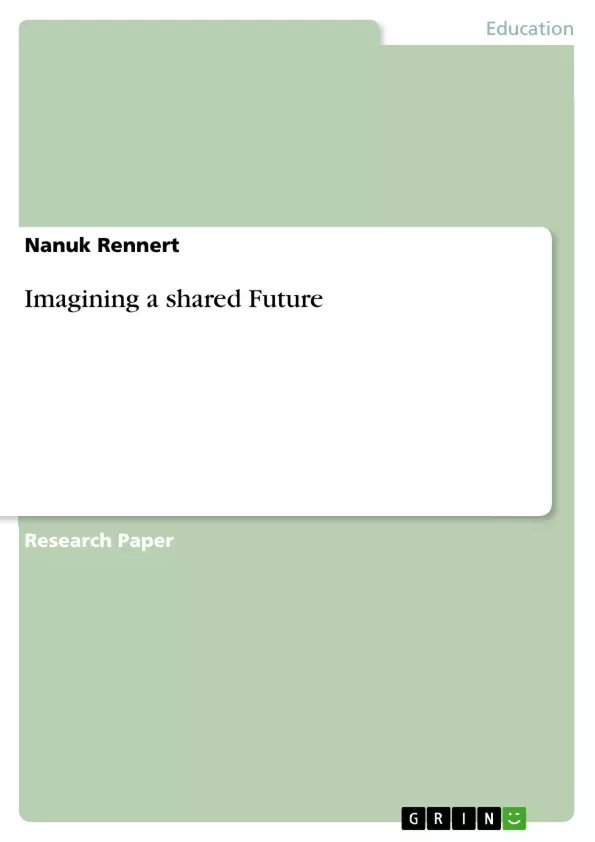Consumption patterns are becoming excessively irresponsible and the waste that is left behind is measurably dramatically increasing. Since these excesses are caused by human behavior, they can all be reversed by changes in human behavior. In order to meet this urgency, people will have to face the challenge of re-imagining their consumption ideals and their attitude towards shared consumption, which if applied to reality will not only benefit the planet but the individual, too.
Humans’ consumption and their acquiring of resources is not a negative force at all. It is part of what makes our lives desirable, diversified and vital. In fact, Economists have known for centuries that the introduction of Property Rights and an intact law system that protects people’s possession of goods is a leading force of economic growth and the incentive for people to work and innovate (Hubbard & O’Brien, 2006). This means that the idea of possessing and acquiring goods is part of what has improved human society as it fueled entrepreneurship, innovation and technology. It would not only be irresponsible but also impossible to ask people to cut down their acquisition of property or possessions because it would directly mean a diminishment of their standard of living and quality of life. As a result we have to find a way to satisfy our consumption desires while at the same time reducing the production of exactly those good. A most promising application is to get people comfortable with the idea of not literally possessing and item anymore if accessing it whenever needed is just as satisfying. However, this may collide with our deep-seated value system.
Inhaltsverzeichnis (Table of Contents)
- Why more is less but sharing the best
- The Car: A Symbol of Consumption and Environmental Degradation
- Car-sharing: A Solution to Reduce Consumption and Waste
- The Benefits of Car-sharing
- The Challenges of Car-sharing
- Conclusion
Zielsetzung und Themenschwerpunkte (Objectives and Key Themes)
The paper analyzes the environmental impact of excessive consumption in today's society, focusing specifically on the car industry. The author explores the potential of car-sharing as a sustainable alternative to individual car ownership, highlighting its benefits in terms of environmental preservation, financial efficiency, and social responsibility.
- Environmental Impact of Consumption
- The Tragedy of the Commons
- Car-sharing as a Sustainable Alternative
- Challenges to Implementing Car-sharing
- The Importance of Imagination and Re-imagining
Zusammenfassung der Kapitel (Chapter Summaries)
- The paper begins by introducing the concept of the "tragedy of the commons," arguing that human beings often prioritize short-term self-interest over long-term sustainability. The author asserts that excessive consumption, particularly in the context of car ownership, is a major contributor to environmental degradation.
- The author then focuses on the environmental impact of cars, highlighting the massive amount of waste generated by vehicle production and disposal. The author argues that a shift away from individual car ownership is essential to reduce this environmental burden.
- This chapter introduces car-sharing as a potential solution to reduce consumption and waste. The author explores the concept of car-sharing, outlining the benefits and potential challenges of implementing such a system.
- This section delves into the numerous benefits of car-sharing. The author highlights the potential for significant environmental improvements, cost savings for individuals, and the potential for promoting social responsibility.
- The author acknowledges that implementing car-sharing on a large scale presents certain challenges. These challenges include overcoming entrenched cultural norms of car ownership, addressing logistical issues, and ensuring accessibility for all individuals.
Schlüsselwörter (Keywords)
The key terms and concepts in this paper include: car-sharing, sustainable consumption, environmental impact, waste reduction, tragedy of the commons, individual vs. collective responsibility, and the importance of imagination and innovation.
Frequently Asked Questions
What is the "tragedy of the commons" in the context of consumption?
It refers to a situation where individuals prioritize short-term self-interest, leading to the depletion of shared resources and environmental degradation.
How does car-sharing contribute to sustainability?
Car-sharing reduces the total number of vehicles needed, thereby decreasing production waste, emissions, and the overall environmental footprint of transportation.
Why is property ownership so deeply rooted in our society?
Property rights have historically been a driver for economic growth, innovation, and entrepreneurship, providing an incentive for individuals to work.
What is the main challenge of moving towards shared consumption?
The main challenge is shifting cultural norms and the deeply-seated value system that associates status and satisfaction with literal possession.
Can accessing an item be as satisfying as owning it?
The paper argues that if access is seamless and reliable, it can satisfy consumption desires while significantly reducing resource production.
- Quote paper
- Nanuk Rennert (Author), 2012, Imagining a shared Future, Munich, GRIN Verlag, https://www.grin.com/document/206337



